The Baha’i teachings say that every human being is unique like all gems are unique – that the Creator has conferred a special individual nature on each one of us. Baha’u’llah wrote:
The Purpose of the one true God, exalted be His glory, in revealing Himself unto men is to lay bare those gems that lie hidden within the mine of their true and inmost selves.
Because we’re “gems of inestimable value,” according to the Baha’i writings, every human being has the potential to shine brilliantly – and creatively.
Our culture tends to train us to believe that only a certain class of artists have that creative spark, but that’s not true – we all do. Creativity is about inventing and articulating new ideas. Being creative means we can use our imagination and think of new ways to make things work better.
We can consciously develop these gems of inner creativity, a special combination of gifts and talents hidden in us waiting to be nourished and empowered. Imagine an unlit candle, with its hidden gift of light waiting to shine forth. Each person, like that candle, has different potentials and powers, and our inborn creativity helps us discover those hidden gems. Using those gifts, creativity helps us see old things in new ways.
Tradition means following the status quo, which says, “well, we’ve always done it this way.” The status quo does not welcome change, which causes many people’s talents and inner gifts to remain undeveloped.
Some traditional cultures do not welcome or encourage fresh ideas, arts, or poetry. New music is not welcomed or encouraged, either. Even new science is viewed with suspicion. In such societies, the arts are diminished.
Often, those kinds of societies do not see the importance of education for girls as equally as boys. However, the Baha’i teachings confirm, not only is it crucial to invest on the education of all children, it is also important to combine the arts and sciences to increase their capacity and creativity. Learning and applying art, drama, and music in our daily lives develops our brain. Multiple studies have shown that children who learn to draw, paint, play music, and act from an early age develop better motor skills and higher levels of creativity than children deprived of these activities.
Comparably, adults continue to benefit from transdisciplinary education to solve issues in society. Christopher Fynsk in his book The Claim of Language asserts that cross-disciplinary studies and collaboration between various divisions such as art, music, film, and sciences can lead to new insight on how to solve problems for humanity. For instance, he points out, studying comparative literature can help a doctor “encounter far-reaching questions about the social constructions of health and the relations to disease, and about the ethical relation that lies at the grounds of community,” a point of view that students are rarely exposed to in medical school curricula.
The Baha’i teachings emphasize the learning of arts, crafts, and sciences, which leads to creativity and progress. In a speech he gave to the students and faculty of Stanford University in 1912, Abdu’l-Baha said that “the highest praise” is due to those:
… who devote their energies to science, and the noblest center is a center wherein the sciences and arts are taught and studied. Science ever tends to the illumination of the world of humanity. It is the cause of eternal honor to man, and its sovereignty is far greater than the sovereignty of kings.
In The Family Virtues Guide, the author Linda Popov wrote that without creativity society will remain underdeveloped. We need to practice creativity to be able to progress and make the world a better and easier place for all. All new inventions and discoveries such as computers, the telephone, the automobile, and new cures for diseases came about as a result of creativity. Moreover, without literature, music, arts and crafts our lives would be boring!
Both adults and children can practice creativity by developing their inner gifts to the fullest. In order to practice creativity, we need to find what we like. Children naturally want to create – to draw, paint, dance, build things – and to acquire those creative skills, they need practice. When we have a vision of something we want to create — to tell a story, draw a picture, sing, or make a new invention — we have to start learning how to make that vision real by working on it and practicing it.
Correspondingly, as adults, we have a vital role in enabling the children in our community to be creative. In contributing to the community-building process in our neighborhoods, we will interact with small children on many occasions, and it is imperative to understand the importance of investing in the development of the children in our community, because as the Universal House of Justice asserts:
… children are the most precious treasure a community can possess, for in them are the promise and guarantee of the future. They bear the seeds of the character of future society which is largely shaped by what the adults constituting the community do or fail to do with respect to children.
They are a trust no community can neglect with impunity. An all-embracing love of children, the manner of treating them, the quality of the attention shown them, the spirit of adult behavior toward them — these are all among the vital aspects of the requisite attitude.
This Virtues Basket video on creativity allows parents and children to comprehend the importance of creativity and how to practice it.
Emphasizing the importance of searching for the gifts and talents hidden in our children and ourselves throughout life is vital to our personal development and to the world around us. Continually developing those talents can make our world a better place for ourselves and others. The aim of this video is to help us self-actualize the idea that we do not need to wait for others to fix society’s issues, create new ideas, or invent ways to make life better and easier for all. In fact, we actually have the power to activate our hidden potential and contribute to the progress of our surroundings through empowering the creative side of our children, increasing our own capacity by self-studying about various subjects, and participating in community-building activities.
Setareh Samandari Zargarpour has always been an artist at heart, after a 20-year career in Banking as Branch Manager for Wells Fargo and Chase she transitioned to working in Film. She had finished her Master of Arts in Political Science from CSUN and utilized it...
READ MORE

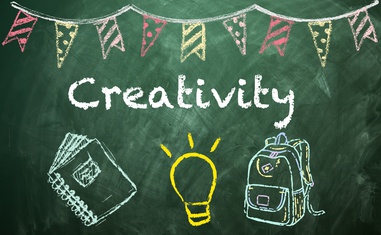
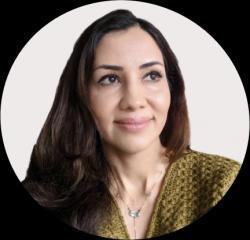
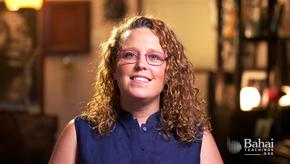
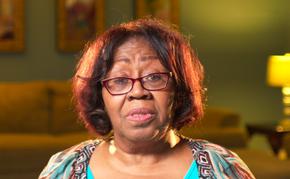
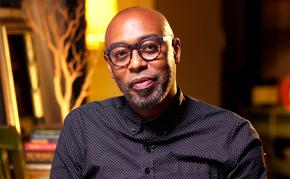

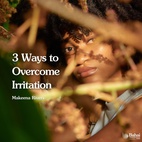








Comments
Sign in or create an account
Continue with Googleor